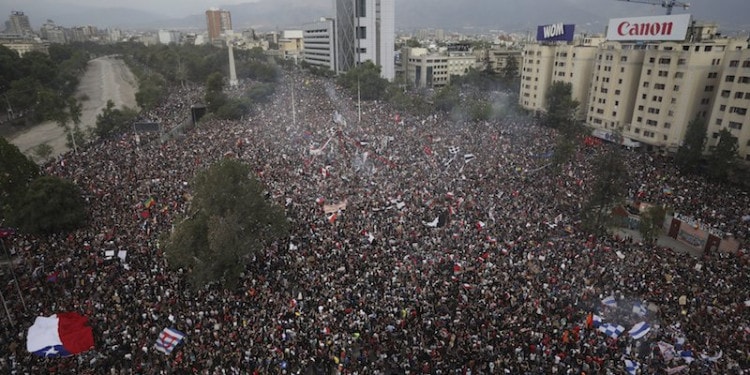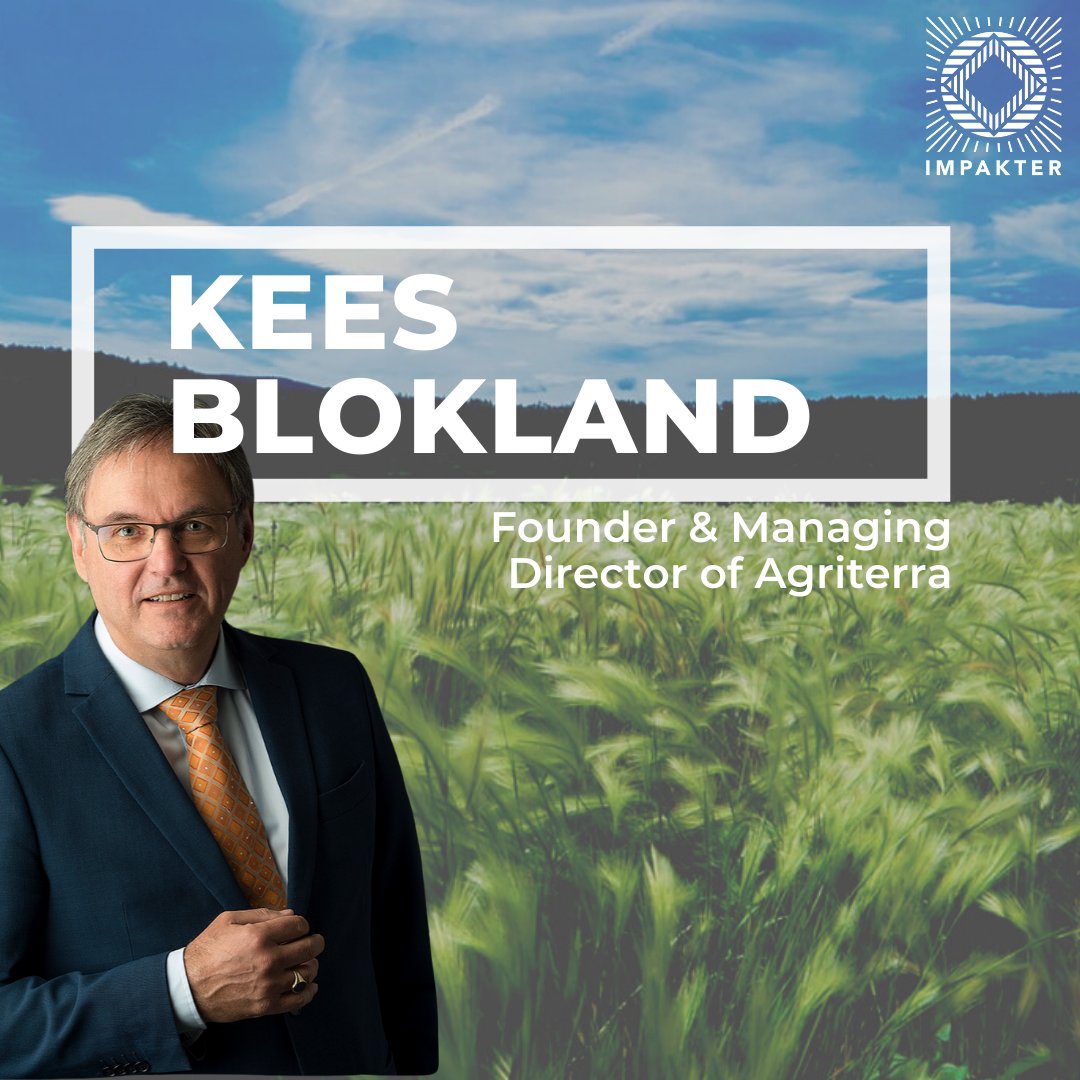Protests in Latin America are now occurring in places where nobody expected them, like democratic Chile, a country relatively well-off compared to many of its neighbors – protests coming on the heels of a recent wave of riots in Bolivia and Ecuador. Rising inequality appears to be behind all of them. Let’s take a closer look.
Unrest and violence burst in Chile, where a seemingly modest policy action has triggered a massive social explosion.
Thousands have taken the streets in Santiago and other cities this month over a relatively small transit fare increase (0.30 pesos or 0.04$, which would make a rush-hour subway ride cost about $1.20) ordered by the conservative President Sebastian Piñera. Yet rioting has gained momentum over stagnant wages despite economic growth.
Related topics: Maduro “tries” to heal Venezuela’s economy with new policies – The Amazon Burns Down – Fires threaten Earth’s Largest Rainforest – If We Burn, You Burn With Us: Hong Kong Protests Escalate
Although thousands of people have marched peacefully, nineteen people have died and more than 5,000 have been detained amidst violent clashes since the beginning of protests. The response of the security forces has been criticized as heavy-handed and on Tuesday a government spokesman admitted that the armed forces had been involved in some of the fatalities. Ten cities have been placed in a state of emergency and under a night curfew. A sort of violence the country had not witnessed since the end of the 17-year-long military dictatorship of Augusto Pinochet in 1990. Many schools and shops remained closed throughout the country, and long queues formed at petrol stations. In Santiago, rioters damaged the city’s metro system with repairs estimated to total at least $200 million.
Piñera subsequently said he had “received the message” and apologized for the “lack of vision” of his establishment. On Tuesday he announced an ambitious raft of measures, aiming to quell protests against his government with the forge of a “new social contract”.
He vowed to increase the basic pension by 20% and proposed a law that would allow the state to cover the costs of expensive medical treatments. He promised to increase the minimum wage and introduce a new higher tax bracket. Electricity rates will also be cut under the reform plan, and the hike in metro prices has been overturned.
But such concessions were not considered enough by the people, who continued with protests and general strikes. The fare increase came at a time when the cost of living for poor and middle-class families has been rising while wages have not kept the pace. In the 2019 Global Competitiveness Report issued by the World Economic Forum, Chile ranks 33rd as the best in Latin America by a wide margin. Santiago is one of the wealthiest cities in Latin America with a GDP per capita around $18,000. Though Chile has the highest income inequality in the OECD, the club of high-income countries.
Chile’s finance minister Felipe Larrain said on Monday during a press conference that civil unrest will “undoubtedly” have an impact on the economy. The UN is now directed to probe police abuses.
CBS respondió a #emergencia en Alameda y Av. Vicuña Mackenna. Cuando el carro iba de regreso a su Cuartel, la gente espontáneamente abrió paso y aplaudió el paso de Bomberos. #BomberosSantiago pic.twitter.com/0gcGZ5ywvI
— Cuerpo de Bomberos de Santiago (@cbsantiago) October 24, 2019
Electoral fraud allegations spark violent clashes in Bolivia
On Sunday, presidential elections were held in Bolivia, which saw Evo Morales re-elected for the fourth term after five days of manual count and nights of violent clashes.
Tough rioting sparked across the country earlier this week after the Supreme Electoral Tribunal (TSE), which was processing remaining ballots on Tuesday, has halted a preliminary electronic vote count with results then showing the contenders possibly headed to second-round with 84% of ballots accounted.
After a 24-hour gap, the TSE updated its count to show Morales with a wider lead of 46.85% of votes to rival Carlos Mesa’s 36.73%, just enough to give him the 10-point lead needed to win in the first round.
The opposition, led by Carlos Mesa, dismissed the preliminary results, claiming electoral fraud. However, the Electoral Court explained that a decision was made to “suspend reporting electronic vote count and to opt for manual vote count results, which, while slower, is more accurate”.
The claims of vote tampering made by Mesa led to violent protests in several Bolivian cities, with protesters setting fire to electoral offices and clashing with police. The security forces used tear gas to repel the protesters.
Morales’ government has denied any meddling and has called for calm but the protests went on. The unrest marked a major jolt for the country, which has had a long stretch of political stability under Morales, Bolivia’s first indigenous president and Latin America’s longest continuous-serving standing leader. In an attempt to calm the uproar, Morales’ government walked back the president’s comments from Sunday, when he declared he had won the election.
After five days of manual vote counting, Evo Morales was then re-elected as president of Bolivia with 47.06% support, securing the 10.5% advantage over his next rival required to declare victory without a second-round vote, Carlos Mesa of the Citizen Community, who won 36.5% of votes.
The uncertainty and the unrest sparked fears among international observers and diplomats that violent unrest of the kind that has recently roiled Chile and Ecuador could be triggered. Thus, The United Nations said it supports an audit of Bolivia’s disputed election result to secure its legitimacy.
The end of fuel subsidies induces an unprecedented wave of protests in Ecuador
Recent weeks have seen an unprecedented wave of protests against the Ecuadorian government and its neoliberal reforms. The unrest was mainly a consequence of the measures demanded by the International Monetary Fund (IMF) and adopted by President Lenín Moreno.
El paquetazo (‘the big package’), as Ecuadorians call the set of economic measures proposed by the President, comprehends the end of government subsidies to fuel – setting prices at the same level as international prices – which, in Ecuador, is subsidized in a way to contain the increase in prices.
It also contains a series of tax and labor reforms. Even though the bill has not yet reached the National Assembly, it is known that it is going along the lines of the IMF demands to make the country more “attractive” to foreign and domestic investment, and to guarantee the payment of a growing foreign debt (which right now is at over 55% of GDP up from below 40% – as required by law – of May 2017, when Moreno took office).
Eliminating fuel subsidies is a recessionary measure, since it took those funds away from the national economy to comply with the demands of the IMF of protecting the “dynamic” sectors of the economy, and allocate them to foreign debt payment and to international reserves.
Alternatives like a gradual increase in sales taxes, a windfall tax (a tax on unforeseen or unexpectedly large profits), or a reform of Tax Credit rules were at the study in the Parliament but have been rejected.
Faced with this situation, the country exploded. At first, people in the transport industry; then, the indigenous movement, and, finally, the majority of the population rose up and paralyzed the country.
The government declared a state of emergency, allowing the armed forces to repress the popular mobilization and suspending constitutional rights such as the right to assemble, to associate and to protest. A curfew was imposed, which had not happened since the dictatorship of the 1970s. The State of Emergency exacerbated violence. So far, eight people have died, around 1,300 wounded and over 1,400 arrested.
Finally, on October 13, the government agreed to meet with the leadership of the indigenous movement and repealed ‘the big package’, announcing the issuance of a new decree supposedly better focused on the benefits of the people. After 12 days of protests and road closures in Ecuador, mainly concentrated in Quito, the Government and indigenous leaders directing the demonstrations came to an agreement to end the national strike.
Globally rising inequalities are the underlying theme of all the protests
We see unrest all around the world now, not just in Latin America. As 2019 heads to the conclusion of its final quarter, there have been large and often violent demonstrations in Lebanon, Chile, Spain, Haiti, Iraq, Sudan, Russia, Egypt, Uganda, Indonesia, Ukraine, Peru, Hong Kong, Zimbabwe, Colombia, France, Turkey, Venezuela, the Netherlands, Ethiopia, Brazil, Malawi, Algeria and Ecuador.
Many of these protests have common roots, they are driven by inequalities – both economic and social. Those protesting are people who have long felt shut out of the wealth of their country. In several cases, a rise in prices for key services has proved the final straw (as in Chile, Ecuador and do not forget France). A basic explanation is that because of very high housing prices, most people are pushed away from the central business districts and typically depend on personal vehicles or public transport to get to work.
Other times it is corruption, like in Lebanon. Or political freedom, like in Bolivia, Hong Kong, and Catalunya. In general, there is evidence of a growing perception of the distance across the different levels of the national community: the government and the ruling class, the working people, the students, the pensioners.
It is clear that traditional economic measures of wellbeing are wholly insufficient to indicate the public’s real sentiments. GDP per capita, for instance, measures an economy’s average income but says nothing about its distribution, which is fundamental. It is also key to assess the people’s perceptions of fairness or injustice, its sense of financial vulnerability, or trust in the government, as these conditions weight heavily on their overall quality of life.
The idea of sustainable development, reflected in the 17 Sustainable Development Goals (SDGs), is indeed moving beyond traditional indicators to a much richer set of objectives, including social fairness and environmental sustainability.
Events like the current ones remind us of the indispensable necessity for State intervention in key areas, especially economic development. Keynes thought really never grows old, and indeed it looks more actual now than ever. Countries need a greater provision of social services, an effective redistribution of income from rich to poor, and an increased public investment because economic growth without fairness and environmental sustainability – which is as to say social justice – is a recipe for collapse.









